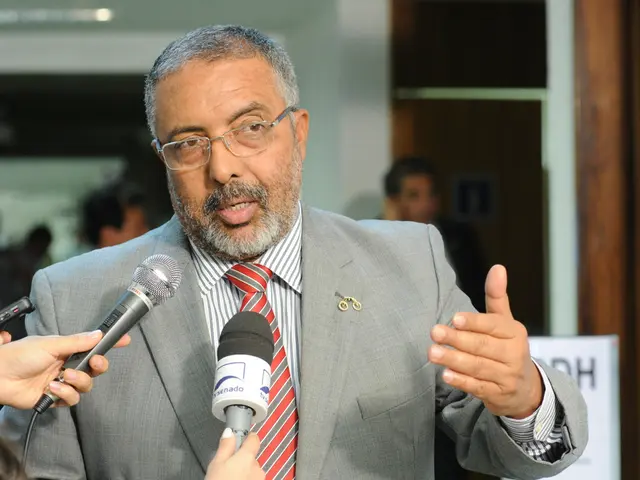Miami's iconic Freedom Tower reopens, coinciding with increased arrests of Cuban migrants in the city celebrated for its Cuban migrant pride, instigated by Trump's policies.
In the heart of Miami, Florida, stands a historic landmark that holds deep significance for the city's residents, particularly those of Cuban descent. Known as the Freedom Tower, this 14-story Spanish Revival skyscraper was once Miami's tallest building and served as a beacon of hope for Cuban refugees from 1962 to 1974.
Originally built in 1925 as the headquarters of The Miami News, the Freedom Tower was designed by the New York architectural firm Schultze & Weaver. After decades of neglect, it has been restored and transformed into a museum, cultural, and education center dedicated to the Cuban exile experience.
The Freedom Tower's role during the Cuban refugee crisis is its most notable historical contribution. During this period, it served as the U.S. State Department’s Cuban Assistance Center, providing medical services, English classes, and support to thousands of Cuban exiles fleeing communist rule after the Cuban Revolution. It became known as the "Ellis Island of the South," symbolizing a gateway to freedom and hope for Cuban immigrants.
After being renamed the Freedom Tower by President John F. Kennedy in 1961, it launched the Cuban Refugee Assistance Program to resettle the streams of middle-class individuals and families fleeing Fidel Castro’s revolution. To the Spanish-speaking migrants, it was affectionately known as "El Refugio," or "The Refuge."
The current restoration of the Freedom Tower was funded by a $25 million investment from the state of Florida, with additional funding from MDC, private donors, and federal government grants. The museum will feature immersive, state-of-the-art exhibits exploring the themes of migration, freedom, and homeland. It will also incorporate the broader immigrant narrative of Miami, including refugees from Venezuela, Haiti, and Nicaragua.
The reopening of the Freedom Tower comes at a sensitive moment, as Cuban Americans in Miami predominantly voted for Donald Trump in the last presidential election. However, Trump's crackdown on migrants, including Cubans, is increasingly viewed as a betrayal by many in Miami, leading to recent protests against him outside the tower. Giant media screens at the museum project scenes of protest and acts of courage by newer residents of Miami fleeing persecution in countries like Venezuela, Haiti, and Nicaragua.
The Freedom Tower's legacy remains powerful in the context of ongoing immigration debates and policies. It stands as a symbol of opportunity, resilience, and the enduring spirit of immigrants within Miami and the United States. The museum's galleries, designed by the same firm behind New York City's National September 11 Memorial & Museum, provide an account of the Cuban American journey to freedom, including exhibits dedicated to the 1961 Bay of Pigs invasion and Operation Peter Pan.
A makeshift recording studio at the museum allows exiles, including prominent voices like singer Gloria Estefan, to add their testimony to an archive of over 300 oral history interviews with exiles. History teacher Jorge Malagón, who arrived in Miami as a 5-year-old Cuban refugee, recalled being welcomed with a bar of peanut butter and a block of government cheese upon arrival.
Madeline Pumariega, the president of Miami Dade College, which now owns the Freedom Tower, stated that the Cuban exiles didn't initially stay in Miami due to lack of jobs. Instead, they were drawn by the promise of freedom and the opportunity to rebuild their lives. The Grand Hall, with its giant windows and Corinthian columns, carried job notices to help the Cubans adjust to their new life.
The Freedom Tower's story is a testament to the resilience and determination of immigrants seeking a better life. It serves as a powerful reminder of the importance of compassion, understanding, and support for those who seek refuge in a new land.
Read also:
- Massive 8.8 earthquake hits off the coast of Russia's Kamchatka Peninsula, prompting Japan to issue a tsunami alert.
- Court petitions to reverse established decision on same-sex marriage legalization
- Proposed Standardization of Food Labeling Laws Among Member States by the Commission
- Current News: AfD Achieves 26% - Union Dips to Laschet's Level






